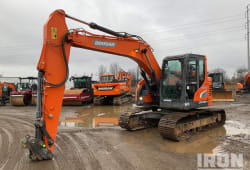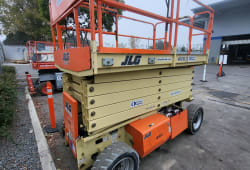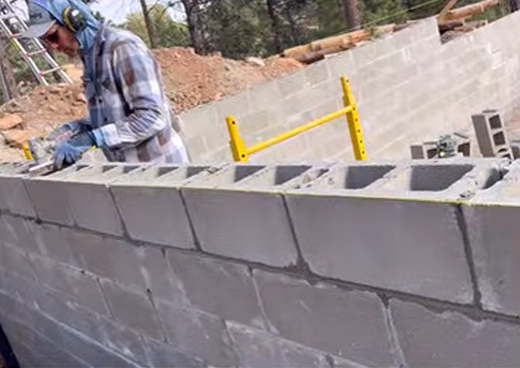Plaster vs. Drywall: Which is Right for Your Project?
3 Min read
)
August 27, 2024
When it comes to finishing the interior walls of a home or building, the choice between plaster and drywall is a significant decision. Both materials have their own sets of advantages and drawbacks, and the right choice can depend on various factors, including the style of the building, budget, and desired finish.
What is Plaster?
Plaster is a traditional building material that has been used for centuries to create smooth, durable wall surfaces. It’s typically made from a mixture of lime, sand, water, and sometimes cement, applied in layers over lath-a framework of wood or metal strips. The result is a hard, solid surface that can last for decades.
Characteristics of Plaster:
Durability: Plaster walls are known for their strength and longevity. When properly maintained, plaster can last for many decades, often outliving the buildings themselves.
Aesthetic Appeal: Plaster offers a classic, smooth finish that’s perfect for older homes or those aiming for a more traditional or elegant look. It can be easily molded into curves, arches, and other decorative elements.
Sound Insulation: Due to its density, plaster provides better sound insulation than drywall, making it a good choice for rooms where noise control is important.
Moisture Resistance: Lime-based plaster is highly resistant to mold and mildew, making it ideal for damp environments.
What is Drywall?
Drywall, also known as gypsum board or sheetrock, is a more modern building material that has become the standard for interior walls in most homes and commercial buildings. Drywall consists of a gypsum core sandwiched between two layers of paper. It’s available in large sheets, making it easy to cover large areas quickly.
Characteristics of Drywall:
Ease of Installation: One of drywall’s biggest advantages is its ease of installation. Large sheets can be quickly cut to size, hung, and finished, significantly speeding up construction time compared to plaster.
Cost-Effective: Drywall is generally more affordable than plaster, both in terms of materials and labor costs. This makes it a popular choice for new construction and renovations.
Versatility: Drywall can be easily painted or textured, allowing for a variety of finishes. It’s also easier to repair than plaster if damaged.
Energy Efficiency: Modern drywall can be paired with various types of insulation, enhancing the energy efficiency of a building.
Plaster vs Drywall
:format(webp)) When to Choose Plaster
When to Choose Plaster
Plaster might be the best option for your project if:
You’re Renovating an Older Home: If you’re working on a historic property or want to maintain a classic, high-end look, plaster is the way to go. It matches the period style and offers longevity that complements older construction methods.
You Need Superior Soundproofing: In environments where sound control is crucial-such as music studios or shared walls in multifamily housing-plaster’s density provides superior sound insulation.
A Custom Finish is Desired: Plaster’s flexibility allows for unique textures, curves, and finishes that drywall cannot easily replicate.
When to Choose Drywall
Drywall may be the better choice if:
You’re on a Budget: If cost is a significant concern, drywall offers a more affordable option without sacrificing too much in terms of durability or aesthetics.
You Need a Quick Installation: For projects with tight timelines, drywall’s easy and fast installation process makes it an ideal choice.
You’re Planning a DIY Project: Drywall is more accessible for DIYers, requiring fewer specialized skills and tools than plaster.
You Want a Modern Finish: Drywall is versatile and can be easily finished with paint, wallpaper, or textured coatings to achieve a modern look.

Javier Bocanegra is Boom & Bucket's Technical Resolutions Lead, drawing on 10+ years in automotive and heavy equipment to diagnose issues, resolve complex post-sale cases, and keep machines - and customers - running smoothly. A certified heavy-equipment specialist, he's known for meticulous inspections and hands-on expertise across mechanical, electrical, and hydraulic systems. Based in Sacramento, Javier partners closely with buyers, vendors, and our field teams to deliver reliable outcomes and uphold our standards for safety and trust.










